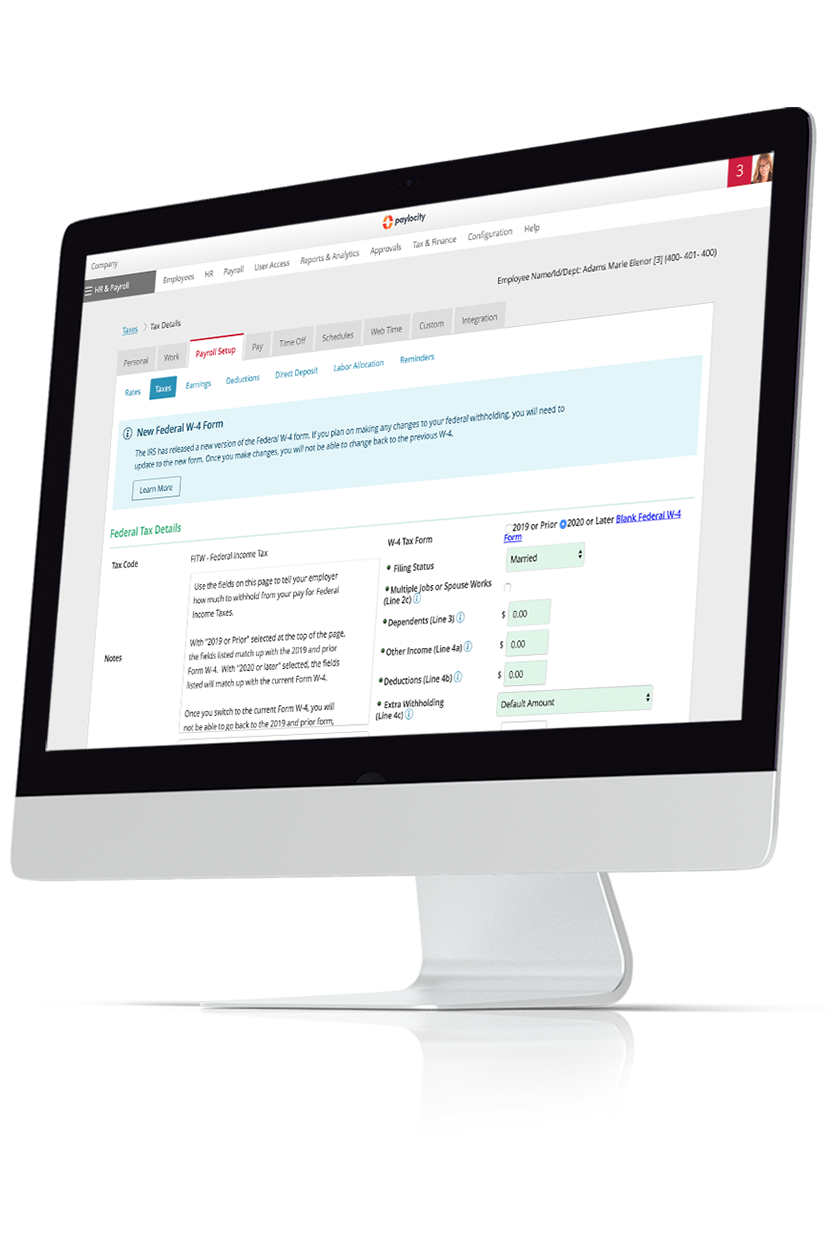Wisconsin Payroll Tax Facts
January 15, 2025
Having to comply with unique state taxes and wage laws can make processing payroll doubly daunting. Here’s everything you need to know about these rates and laws for the state of Wisconsin.

Wisconsin predominantly uses the same minimum wage rate requirements as the federal government’s Fair Labor Standards Act (FLSA). There is one exception though, for employees who are under the age of 20, whereby employers can pay an “opportunity wage” during the first 90 days of employment. In such cases, the state allows employers to use a lower than normal wage rate.
When it comes to processing payroll, Wisconsin-based organizations must handle the following taxes in addition to those required by the federal government:
- Personal Income (a.k.a. State Income Tax)
- State Unemployment Insurance (SUI)
The below information was last updated January 15, 2025. It is not intended as legal or tax advice.
Wisconsin Payroll Tax Rates
Wisconsin State Income Tax (SIT)
Wisconsin's SIT is progressive, meaning it adjusts based on the income level of the employee paying the tax:
|
Income Tax Bracket |
2025 Income Tax Rate |
|
$0 – $12,760 |
3.54% of excess over $0 |
|
$12,760 – $25,520 |
$451.70 + 4.65% of excess over $12,760 |
|
$25,520 – $280,950 |
$1,045.04 + 5.30% of excess over $25,520 |
|
$280,950 or greater |
$14,582.83 + 7.65% of excess over $280,950 |
|
Additional Wisconsin SIT Details |
|
|
Valid Filing Statuses |
|
|
Exemptions |
|
|
Form W-4 |
Form WT-4 |
|
Reconciliation Frequency |
Annual |
Wisconsin State Unemployment Insurance (SUI)
SUI provides unemployment benefits to eligible workers who are unemployed through no fault of their own (as determined by state law) and meet the state’s eligibility requirements.
|
Wisconsin SUI Tax Details |
|
|
Taxable Wage Base |
$14,000 |
|
Employee Subject to Tax |
No |
|
Rates for Experienced Employers |
0.00% - 12.00% |
|
Rates for New Employers |
|
|
Effective Period |
Calendar Year |
|
Voluntary Contributions Allowed |
Yes; must be received by November 30. |
Wisconsin State Disability Insurance (SDI)
SDI benefits are funded by employees through mandatory payroll deductions from each paycheck. Wisconsin, however, doesn't require employers to collect an SDI tax.
Wisconsin Paid Sick Leave (PSL) Tax
The state of Wisconsin doesn’t require employers to collect PSL taxes, nor does the state have a program providing such leave to employees.
Wisconsin Paid Family and Medical Leave (PFML) Tax
The state of Wisconsin doesn’t require employers to collect PFML taxes, but it does require protected, unpaid leave for certain employees under its Family and Medical Leave Act (FMLA).
|
Wisconsin FMLA Details |
|
| Covered Employers | All who have at least 50 permanent employees during at least six of the prior 12 months |
|
Covered Employees |
All who have worked for a covered employer for at least 52 consecutive weeks and at least 1,000 hours in the prior 52-week period |
|
Maximum Leave |
Up to two weeks |
|
FAQs |
|
Miscellaneous Wisconsin Tax Information
Wisconsin Reciprocal Agreement(s)
Reciprocal agreements are when workers who live and work in different states are only required to pay taxes to the state where they live. Wisconsin currently has reciprocal agreements with the following states:
- Illinois
- Indiana
- Kentucky
- Michigan
Employees residing in these states must complete a Form W-220 to declare their status as a nonresident working in Wisconsin.
Wisconsin Minimum Wage Rates
|
Wage Type |
Wisconsin Rates |
Federal Rates |
|
Minimum Wage |
$7.25* |
$7.25 |
|
Tipped Minimum Wage |
$2.33 |
$2.13 |
|
Actual Tip Credit |
$4.92 |
$5.12 |
*Opportunity employees may be paid $5.90 per hour.
Paying Payroll Taxes in Wisconsin
Wisconsin Employer Registration
The agencies below can help with your state-based employer registration, including best practices, account numbers, and unemployment information. Contact the Department of Revenue for withholding tax topics or the Department of Workforce Development for unemployment tax topics.
|
Registration Details |
Department of Revenue |
Department of Workforce Development |
|
Phone |
(608) 266-2776 | (608) 261-6700 |
|
Online Registration |
My Tax Account Page | DWD New Employer Registration |
|
Registration Form |
Form BTR-101 | Form UTC-1-E |
|
Registration Instructions |
Online and paper registration options are available. Account numbers are issued in 2 days via the online process or in 2-3 weeks via mail. | Online and paper registration options are available. Account numbers are issued during the online process or in 1 week via mail. |
|
Employer Self-Service Login |
My Tax Account Page | DWD Login Page |
Additional Wisconsin Payroll Tax Resources
- Department of Revenue Business Tax Registration FAQs
- Department of Revenue Business Tax Forms
- Department of Workforce Development Unemployment Resources for Employers
This information is provided as a courtesy and may be updated at any time. It is not intended as legal or tax guidance. If you have questions or concerns, we encourage you to seek the advice of a qualified CPA, tax attorney, or advisor.

Get Taxes Done Right, Without the Stress
We know there's a lot that goes into preparing and filing payroll tax forms. Save time and get support from our expert team. As a Registered Reporting Agent with the IRS, we can help prepare and file all the necessary forms you need to remain compliant - even in the face of changing legislation. Learn more here.